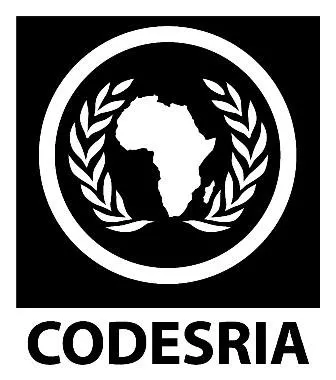The Trial of President Hissène Habré: A Turning Point for African and Global Justice?
1. After a long political-judicial battle by Chadian victims, a court in Senegal recently completed the trial of former Chadian President Hisséne Habré. On August 22, 2012, Senegal had signed an agreement with the African Union to try those most responsible for the international crimes committed in Chad between June 7, 1982 and December 1, 1990. Senegal then adopted legislation to implement the agreement’s provisions. The Extraordinary African Chambers (EAC) were thus born. Through the EAC, Senegal became the first African jurisdiction to establish a criminal justice mechanism within its national courts to investigate and prosecute alleged perpetrators of international crimes committed in another African state, in this case, Chad. The battle was long, but the procedure before the EAC was prompt. On April 27, 2017, the EAC appeals judges confirmed the conviction of Hisséne Habré and his sentence to life imprisonment for war crimes, crimes against humanity and torture. Approximately 25 years after the crimes, and 15 years after the start of the procedure, the victims finally obtained some justice.
2. The trial of Hisséne Habré was historic. For the first time, on the basis of universal jurisdiction, the African Union supported the prosecution of a former African leader for crimes under international law committed in a state other than that in which he was tried. The trial took place at a time when African public opinion, extremely sensitive to the continent’s colonial past, had experienced tumultuous relations with the permanent International Criminal Court which has to date indicted and prosecuted only Africans. The Habré trial raises important questions, including: Did the trial promote African sovereignty? What was its contribution, if any, to the normative development of national, regional and international criminal justice? What are the moral, sociological and didactic contributions of the EAC at the national, regional and international levels?
3. «The Habré research project [1]», an academic collaboration dedicated to studying the possible impact of the Habré case on the development of global justice standards, intends to organize a conference on the theme: Extraordinary African Chambers: Opportunities, Challenges and Legal Implications for Regional and International Criminal Justice.
4. The main topics of the conference include:
• The use of universal jurisdiction at the EAC;
• The normative interaction between the EAC and the Senegalese national legal system;
• The Habré trial as a test case for cooperation between Chad and Senegal;
• The role of the AU as an actor in the implementation of international criminal justice in Africa;
• The role of external actors, civil society and or other partners in the struggle for accountability in Chad;
• The implications of the trial and lessons learned for the African Court of Justice;
• The role of victims in the trial;
• Defense rights in the trial;
• The treatment of sexual and gender based violence in the trial; and
• Other topics related to the importance of the EAC for existing or developing norms of regional and international criminal justice.
5. Guidelines for submission of proposals
We invite researchers based in African universities or other institutions of higher learning to submit proposals for articles based on original research. These should be sent to habreresearchproject@gmail.com. Proposals should not exceed 1,000 words, and should include an abstract and a bibliography. Accepted papers will be presented by the authors at a conference that will be held in Dakar, Senegal, and will be eligible for publication by a peer-reviewed CODESRIA journal (such as Africa Development) or in the African Journal of International Criminal Justice. The authors agree that if their work is accepted, it will not be published elsewhere before presentation at the conference.
6. Submission guidelines for accepted papers
• All accepted manuscript submissions must be in English or French, and not exceed 10,000 words.
• All submissions must be original work not yet published or accepted for publication elsewhere.
• Authors should provide a 200-word abstract and keywords with their submission.
• We reserve the right to refuse publication of the article if at least one author, in the case of joint submissions, is not registered to attend the conference.
• For authors whose papers are selected, upon delivery of the complete manuscript, a small honorarium will be paid. The project will bear economy travel and hotel expenses for selected authors to present their work at the conference.
7. Timeline
• July 15, 2017: deadline for submission of preliminary proposals.
• August 1, 2017: successful candidates notified and comments on preliminary proposals sent.
• December 1, 2017: completed draft papers due.
• February [date TBD] 2018: start of the conference.
[1] The Habré Research Project is a collaborative research initiative based at Florida International University (Miami, USA) and Temple University (Philadelphia, USA). The principal investigators are Professor Charles C. Jalloh and Professor Margaret M. deGuzman, with the assistance of Dr. Ndeye Amy Ndiaye. The research is funded by the Africa Regional Office of the Open Society Foundation, and supported by the Council for Development of Social Science Research (CODESRIA), based in Dakar, Senegal. Questions about the project or the call for papers should be directed to habreresearchproject@gmail.com.






